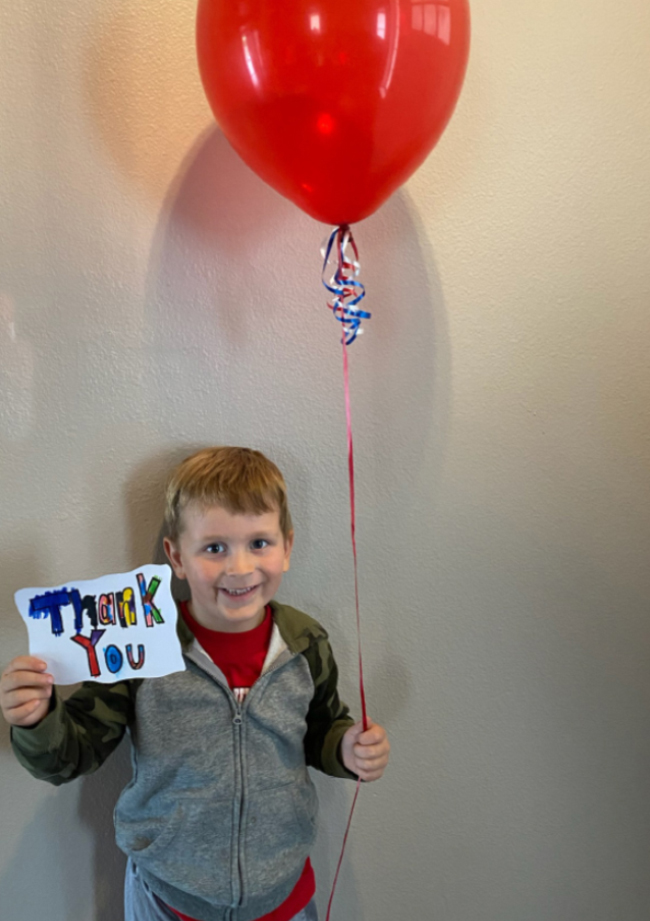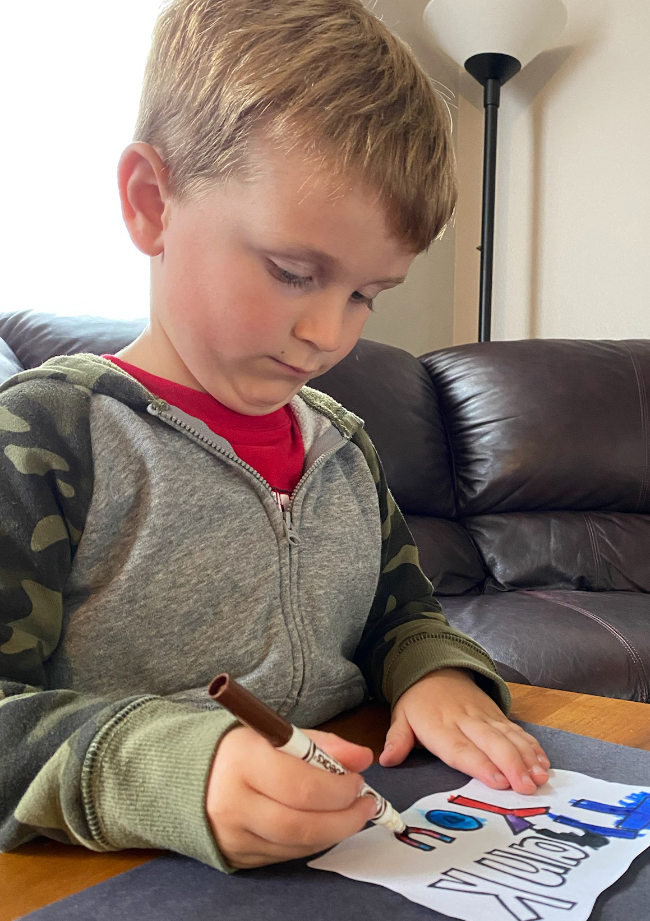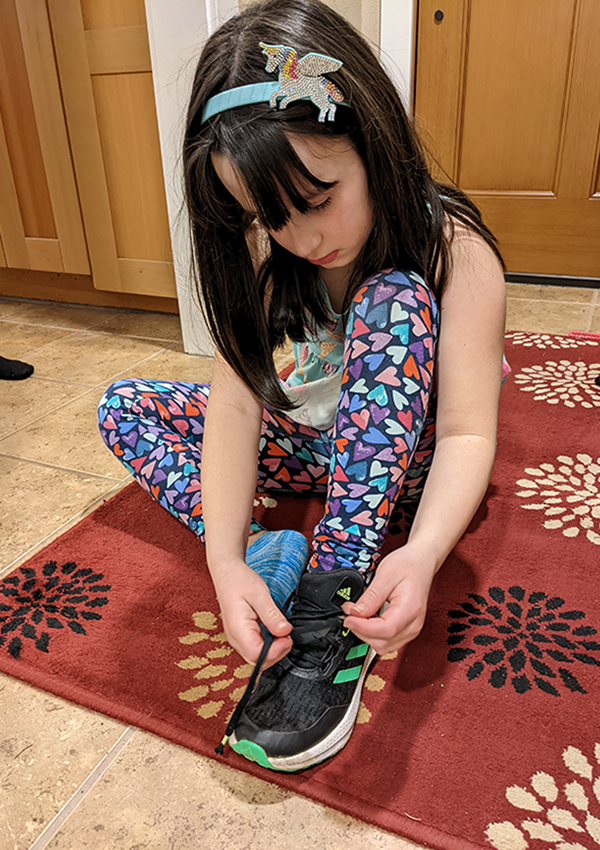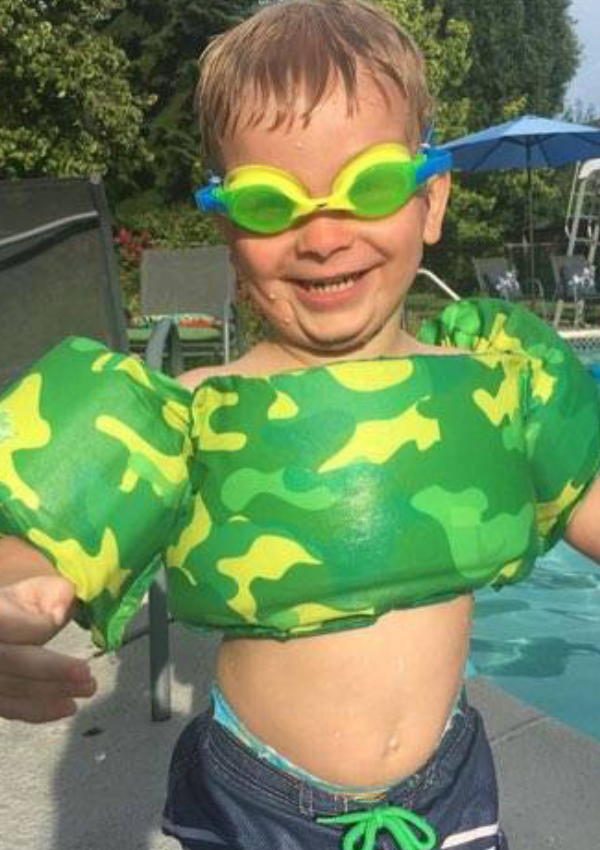Who cares if the kid gets the red balloon?
If you read my post from two weeks ago you know I shared a story from when my son was younger. I didn’t let him have a balloon after he rejected the color that was being offered to him by an employee at a party store. I got a lot of positive feedback from people agreeing with my perspective about teaching appreciation, but I also had someone challenge my thinking by asking me, essentially, who cares if the kid gets the red balloon?

They wanted to play devil’s advocate and talk about why it mattered if my son (nearly three at the time) asked for the balloon color he wanted? They suggested that it “didn’t hurt to ask” and that if the lady in the store didn’t mind then why did I? I respected the question because I have asked myself that, and similar questions, many times over the years. Should I let my kids have what they want for meals, or should they eat what I make them? Must they write a thank you note, or is saying thank you over the phone good enough? Does it matter if they take two candies from the bowl at the bank, or is taking only one piece the right thing to do?
I guess my short answer to the question is that I wanted to teach my kids about receiving. I wanted my kids to understand that there is a considerate way to accept an “offering”. To receive a gift. To receive help. To receive a compliment. And that, ideally, those offerings would be received with appreciation. With an understanding that the gift/help/compliment did not have to be given. I wanted my kids to learn to recognize, acknowledge, and value, thoughtful gestures regardless of how small they may seem.

Entitlement is the belief that you have a right to something. That you are “inherently deserving of privileges or special treatment”. Entitlement can be ugly and is, arguably, one of the biggest issues facing humanity. Many of our current societal issues stem from some form of entitlement and kids are, by nature, self-centered. From the moment they are born life is all about others meeting their needs. That is all they know, and while it is obviously a necessity (and a good thing!) in the beginning, there needs to come a time that we transition our kids from self-centered, to being more self-less. Helping them to realize that they are a part of something bigger and that “the world does not revolve around them”. But that can only be taught once it really doesn’t revolve around them. (I promise you they can handle it much sooner than we give them credit for too!) However, in many families, no matter how old the kids get, that day never seems to come…
While having the discussion about – Who cares if the kid gets the red balloon? It was suggested that I could have let my son have the balloon in the color he wanted and then had a conversation with him afterwards about the importance of being appreciative. I could have. But that has never been my style. Trust me, I had many of those types of conversations with my kids over the years, as I am sure most of you have. (Mine, I am certain, will tell you that ours were ad nauseam! Lol) But there is no substitute for the experience of the lesson. More often than not, the words alone are not enough. Do you think a 3-year-old will remember a conversation about not getting a balloon, or will they remember actually not getting the balloon? And more to the point, which method do you think will most likely lead to more mindfulness about receiving something in the future?
Had I let my son be given the balloon that day (either color) I am reasonably confident that it would not have sent him down some immediate path of ungratefulness and ingratitude for the rest of his days. The issue, though, is that there are lessons that need to be taught and there is an accumulative nature to the lessons. Life lessons build off of one another. The sooner we start teaching and modeling those lessons the more likely they are to stick; ultimately becoming the morals, principles, and philosophies by which our children will live. So, who cares if the kid gets the red balloon? Me! I do. And I hope you do too!







What gets me is when I offer a child one of something in a group setting and they say, “Can I have two?” That is a hard thing for me to excuse when it is obvious everyone is getting one. It leaves me wondering if that child understands limits/boundaries.
Often times I don’t think they do, Kirsten. With any of us, we don’t know what we don’t know. If boundaries are not taught, then we can’t expect for them to be followed. That’s why we have to know that we DID set the expectation. (And sometimes we HAVE set the expectation but kids will still push the boundaries to see if we will stick with it). In this case I would say something like “No, sorry honey. Everyone is only getting one and that includes you.”
I enjoyed this poignant post, as it presented a balanced “dialogue” on this parental consideration. It effectively diminished the validity of opposing “arguments” by acknowledging them, and pointing out that learning is often and necessarily an “accumulative nature.” And humans generally learn better experiential. This was thoughtful and provocative.
Thank you April! I am glad that you enjoyed the post and I appreciate your thoughtful feedback.